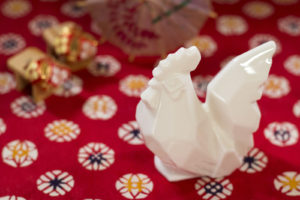As Americans, we often find ourselves rooted so deeply in American traditions that we can sometimes forget to consider other cultures and their significance on this world. However, by following the teachings of Aikido, Shin-Gane’s students have already opened their minds and souls to the benefits provided by Japanese culture. Today, we dive a bit deeper by focusing on some of the most prominent Japanese holidays and how they influence Aikido’s overall purpose.
Respect for the Aged Day (September 19)
Having proper respect for the elder generation is not only fundamental to building a strong relationship between Sensei and student; it’s a core element of Japanese culture. Respect for the Aged Day is the ultimate celebration of Japan’s most advanced generation, complete with food, songs and dances – all served by community volunteers – during the Keirokai ceremony.
Culture Day (November 3)
Just as Aikido’s philosophical ideals fuel the core of what we do at Shin-Gane, Japan is one of only a handful of countries that takes an entire day to recognize the importance of its culture. As a result. Culture Day is an event dedicated to Japan’s art, music, costume, dances and more.
Labour Thanksgiving Day (November 23)
Sharing many similarities with the United States’ Labor Day and Thanksgiving, Labour Thanksgiving Day is used to show appreciation for those who contribute to Japan’s workforce infrastructure. Just like the nature of achieving success in Aikido, Labour Thanksgiving Day is the epitome of reaping the rewards of working hard, persevering through challenges and completing a job well done.
New Years Day (January 1)
In the Japanese culture, each new year is represented by a sacred animal in the zodiac. When 2017 finally arrives, the monkey of 2016 will pass the baton on to its rooster ancestor. The rooster is said to embody luck, as well as carry messages down from the gods. As a totem animal, the rooster stands for perseverance, a quality every Aikidoka must have in order to advance in Aikido.
Coming-of-Age Day (January 11)
In Japan, the Coming-of-Age Day signifies an adolescent’s graduation from his/her teen years. In this same vein of thought, Aikido recognizes when a student achieves enough skill to graduate from a Kohai student to a Sempai student.
Learn More About Japanese Culture…
At Shin-Gane, we believe that Aikido is more than just a means of self defense; it truly is a way to hone the mind, body and soul to create the best form of you. Learn more about the philosophy and teachings of Aikido by signing up for a free introductory class at the Shin-Gane St. Louis Aikido Dojo.


Leave a Comment